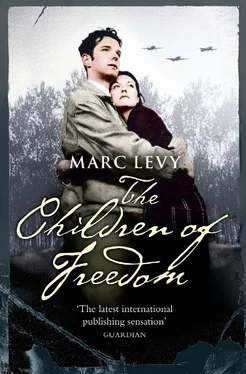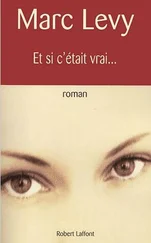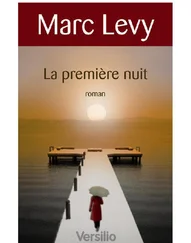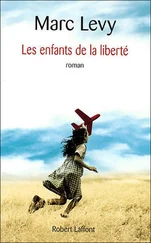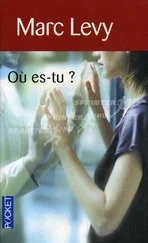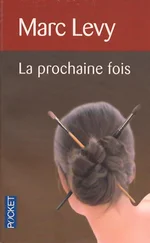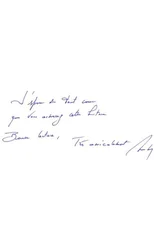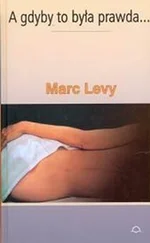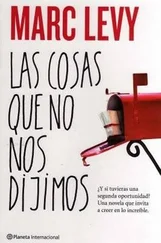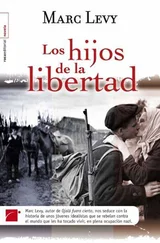The Children of Freedom
Translated from the French by Sue Dyson
Marc Levy
For my father for his brother Claude, for all the children of freedom.
For my son and for you my love.
I am very fond of that verb, ‘to resist’. To resist what imprisons us, to resist prejudices, hasty judgements, the desire to judge, everything that is bad in us and cries out to be expressed, the desire to abandon, the need to make people feel sorry for us, the need to talk about ourselves to the detriment of others, fashions, unhealthy ambitions, prevailing confusion.
To resist, and…to smile.
Emma Dancourt
Cover Page
Title Page The Children of Freedom Translated from the French by Sue Dyson Marc Levy
Epigraph I am very fond of that verb, ‘to resist’. To resist what imprisons us, to resist prejudices, hasty judgements, the desire to judge, everything that is bad in us and cries out to be expressed, the desire to abandon, the need to make people feel sorry for us, the need to talk about ourselves to the detriment of others, fashions, unhealthy ambitions, prevailing confusion. To resist, and…to smile. Emma Dancourt
Prologue
PART ONE
1
2
3
4
5
6
7
8
9
10
11
12
13
14
15
16
17
18
PART TWO
19
20
21
22
23
24
25
26
27
28
29
PART THREE
30
31
32
33
34
35
36
37
38
39
Epilogue
About the Author
Also by Marc Levy
Copyright
About the Publisher
Tomorrow I shall love you; today I don’t yet know you. I began by walking down the staircase of the old apartment building where I lived, a little hurriedly, I confess. On the ground floor, my hand gripped the handrail and felt the beeswax that the concierge applied methodically as far as the bend on the second-floor landing on Mondays, and then up to the other floors on Thursdays. Although light was gilding the fronts of the buildings, the pavement was still glistening from the dawn rain. Just think: as I walked along lightly, I as yet knew nothing, nothing at all about you, you who would one day assuredly give me the most beautiful gift that life gives to human beings.
I went into the little café on rue Saint-Paul; I had time on my hands. There were only three people at the counter – not many of us had an abundance of leisure on that spring morning. And then, hands behind his raincoat, my father came in. He rested his elbows on the bar-top as if he hadn’t seen me, an elegant mannerism that was all his own. He ordered a strong coffee and I caught sight of the smile he was hiding from me as well as he could, which wasn’t that good. He tapped on the counter, signalling to me that ‘all was quiet’ and I could at last approach. As I brushed against his jacket, I felt his strength, the weight of the sadness crushing his shoulders. He asked me if I was ‘still sure’. I wasn’t sure of anything, but I nodded. Then he pushed his cup towards me very discreetly. Underneath the saucer was a fifty-franc note. I refused it, but he set his jaw very firmly and muttered that in order to make war, one had to have a full belly. I took the banknote and, from the look he gave me, I realised that it was time for me to leave. I adjusted my cap, opened the café door and walked back up the street.
Walking past the window, I looked at my father inside the bar, a little stolen glance, that’s all; and he gave me his final smile, to indicate to me that my collar wasn’t on straight.
There was a look of urgency in his eyes that it took me years to understand, but all I have to do today is close mine and think of him for his last expression to come back to me, intact. I know that my father was sad that I was leaving, and I guess also that he sensed that we would never see each other again. It wasn’t his death he was envisaging, but mine.
I think back to that moment in the Café des Tourneurs. It must demand a lot of courage on the part of a man to bury his son while standing right next to him, drinking a chicory-blend coffee, to remain silent and not say to him, ‘Go home right now and do your homework’.
One year earlier, my mother had gone to fetch our yellow stars from the police station. This was the signal for our exodus and we left for Toulouse. My father was a tailor and he would never sew that filth on a piece of fabric.
On that day, 21 March 1943, I was eighteen years old. I caught the tram and I left for a station that doesn’t feature on any map: I went to seek out the Maquis.
Ten minutes ago I was still called Raymond; since I got off at the terminus of line 12, my name is Jeannot. Nameless Jeannot. At that still-gentle time of day, many people in my world have no idea what is going to happen to them. Dad and Mum don’t know that soon a number is going to be tattooed on their arms; Mum doesn’t know that on a railway platform, she will be separated from this man whom she loves almost more than us.
As for me, I don’t know yet either that in ten years’ time, I will recognise, in a heap of pairs of spectacles almost five metres high at the Auschwitz Memorial, the frames that my father slipped into the top pocket of his jacket, the last time I saw him at the Café des Tourneurs. My little brother Claude doesn’t know that soon I will come looking for him, and that if he hadn’t said yes, if we hadn’t faced those years together, neither of us would have survived. My seven friends, Jacques, Boris, Rosine, Ernest, François, Marius, Enzo, don’t know that they are going to die shouting ‘Vive la France’, and almost all of them with a foreign accent.
I strongly suspect that my thoughts are confused, that the words will tumble over each other in my head, but from that Monday noon onwards and for the next two years, my heart is going to thump ceaselessly in my chest to the rhythm imposed by fear; I was afraid for two years, and sometimes I still wake up in the night with that same bloody feeling. But you are sleeping beside me, my love, even if I don’t know it yet. Anyway, here is a little of the story of Charles, Claude, Alonso, Catherine, Sophie, Rosine, Marc, Emile, Robert, my Spanish, Italian, Polish, Hungarian and Romanian friends, the children of freedom.
PART ONE
You must understand the context within which we were living; context is important, as in the case of a sentence, for example. Once removed from its context it often changes its meaning, and during the years to come, so many sentences will be removed from their context in order to judge in a partial way and to condemn more easily. It’s a habit that won’t be lost.
In the first days of September, Hitler’s armies had invaded Poland; France had declared war and nobody here or there doubted that our troops would drive back the enemy at the borders. Then the flood of German armoured divisions had swept through Belgium, and in a few weeks a hundred thousand of our soldiers would die on the battlefields of the North and the Somme.
Marshal Pétain was appointed to head the government; two days later, a general who refused to accept defeat launched an appeal for resistance from London. Pétain chose to sign the surrender of all our hopes. We had lost the war so quickly.
By swearing allegiance to Nazi Germany, Marshal Pétain led France into one of the darkest periods of her history. The Republic was abolished in favour of what would henceforth be called the French State. The map was divided by a horizontal line and the nation separated into two zones, one in the north, which was occupied, and the other in the south, which was allegedly free. But freedom there was entirely relative. Each day saw its share of decrees published, driving back into danger two million foreign men, women and children who now lived in France without rights: the right to carry out their professions, to go to school, to move around freely and soon, very soon, the very right to exist.
Читать дальше
